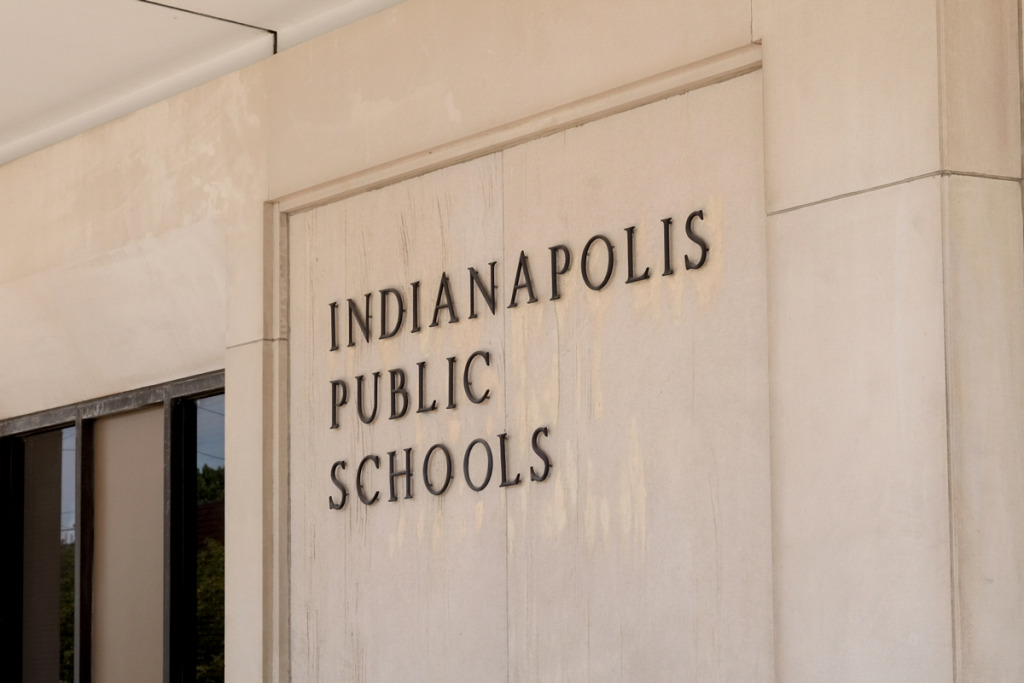Subscriber Benefit
As a subscriber you can listen to articles at work, in the car, or while you work out. Subscribe NowThis story was originally published by Chalkbeat Indiana.
Indianapolis Public Schools may sell two closed school buildings without first offering them to charter schools for $1, a Marion County judge ruled on Monday.
Judge Heather Welch’s ruling in the district’s lawsuit against the state over the so-called $1 law—which requires districts to make those buildings available to charter schools or state education institutions for $1 sales or leases—concluded that IPS can sell the buildings because it previously agreed to share referendum funding with its Innovation Network charter schools in 2021.
The ruling against state Attorney General Todd Rokita, Indiana Secretary of Education Katie Jenner, and the Indiana state board of education means the district can sell Raymond Brandes School 65 and Francis Bellamy School 102, both of which closed to students at the end of last school year.
Raymond Brandes School 65 is on the city’s south side, at 4065 Asbury St. Francis Bellamy School 102 is on the far-east side, at 9501 E. 36th Place.
It was not immediately clear Monday if any state agency planned to appeal Welch’s ruling. In a statement, the IPS school board said it was grateful for the judge’s ruling, which the board said reaffirmed the district’s ability to make decisions about the reuse of its facilities.
“We’re proud that we have already worked with organizations and community members so that, along with a number of possible options, some of these buildings will serve students with mental health needs, deaf students, and adult learners,” the statement said. “We continue to strive to not only be a good partner but also be fiscally responsible with the resources that have been entrusted to us by our community.”
In a statement responding to the ruling, a spokesperson for Rokita’s office said it will “continue to fight to uphold the law, as it is our statutorily authorized duty.”
“Charter schools provide a multitude of positive opportunities for children and allow Hoosier parents to have a say in how their kids are being educated,” the spokesperson said.
The Indiana Department of Education did not immediately respond to requests for comment.
The lawsuit hinged on a new exemption to the $1 law, and highlighted ongoing tension between IPS and the broader charter community about resources and facilities.
That exemption applies to districts that distribute money from a voter-approved tax increase for operating or safety expenses to an “applicable charter school”
IPS, which sought relief from the $1 law in August, claimed in court filings that it was exempt from the law because it shared funds from its 2018 property tax increase with charters in its Innovation Network of autonomous schools.
Rokita’s office, however, argued that the district also needed to comply with a new referendum-sharing requirement imposed on school districts this year in order to be exempt.
That new requirement says school districts in Marion County and three other counties must share operating or safety referendum funds with charter schools that enroll a student in that district for any ballot question passed after May 10, 2023. Virtual and adult high school charter schools are exempt from receiving such funds.
In her ruling, Welch applied the “unambiguous” language of the exemption statute as written, arguing that the district is already distributing referendum funds to at least one charter school and is therefore exempt from the $1 requirement. The exemption applies for as long as IPS continues to give its charter schools such distributions, the ruling noted. The distributions are slated to last through 2026.
Lawmakers could have been more specific in crafting the new exemption to explicitly require districts to follow the new referendum-sharing requirements in order to be exempt from the $1 statute, Welch said.
But the court “must ultimately apply the statutes as written and cannot otherwise engage in further statutory construction to ascertain the General Assembly’s intent for passing the 2023 amendments to the Dollar Law in the particular manner the Legislature did,” the ruling stated.
But IPS is only exempt due to the “unique timing of the prior referendum and its election to distribute funds to charter schools,” Welch noted.
If IPS were to extend its current agreement to share funding with charter schools or begin distributing funds from a referendum held after May 10 of this year, it would be subject to the new state law requiring it to distribute funds to any charter school that enrolled an IPS student, Welch added.
Chalkbeat Indiana is a not-for-profit news site covering educational change in public schools.
Please enable JavaScript to view this content.


Always a good day when you can get around the shady Indiana republicans over at the state house. I
Todd Rokita loses again!
What was the original intent of the $1 law? The purchase/construction or sale of a building should involve a lot of planning and input from various agencies. Why would it be beneficial to tax payers for IPS to sell unused buildings for $1? Would any of us be wise to buy a building for full market value then sell it for $1?
The intent of the law was to give charter schools public property on the cheap … to make sure the charter school advocates who give our legislators campaign contributions continue to give money.
Yep, For-Profit Charter operators lobbying lawmakers cooked this one up to give away tax dollars to make sure they had some profits to pocket before they skipped town.
Let’s face it, charter schools are private schools so they shouldn’t receive any public funding.
+1
Just waiting for this to happen to Broad Ripple High school. Surprised it wasn’t listed in the judgement.